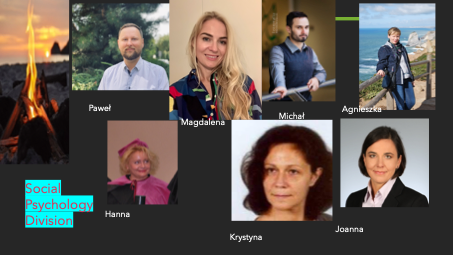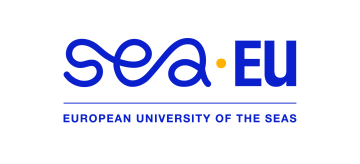
Hanna Brycz currently works at the Institute of Psychology, University of Gdansk, in the position of full professor. She serves there as the head of Social Psychology Division. Hanna does research in Social Psychology, Experimental Psychology and Cognitive Psychology. Her current project is "Metacognitive Self (MCS)". She understands metacognitive self as self-awareness of biases. She discovered so far that individuals high in metacognitive self are also more accurate not only in self-perception of biases but also in real behavior (they really commit more self-regulatory biases, as e.g., confirmation bias). Metacognitive self as rooted in cognitive processing, fosters goal’s attainment. Metacognitive self is also related to positive feelings (longitudinal studies) and pro-healthy emotion regulation. Exploratory study of MCS neural correlates (fMRI) suggests that signals in several cortical areas supportive of higher order cognitive processes was positively associated with higher MCS. Strong MCS is associated with the observation of a cluster with the voxels in the temporoparietal junction, an area consistently implicated in social cognition, including empathy, perspective taking, and pro-social behaviors.
- A great part of our research focuses on the phenomenon of Metacognitive Self, understood as self-awareness of biases in social perception. Our research reports to date indicate the motivating role of the metacognitive self in learning, it's importance for human development, and is rooted in cognitive processing.
- A growing body of research demonstrates that using technology can – despite the obvious benefits – be associated with stress. The aim of a part of our study is to explore how perceived technostress while learning a new technology may be grounded in individual differences, attitudes towards ICT (Information and Communication Technologies), and the way technology is presented.
- In addition, our research looks at social beliefs that play different roles in different cultures. The aim of our research projects is also to test the relationship between the working climate and the attitudes and behavior of employees.
Krystyna Adamska, serves as Associate Professor, University of Gdansk, she also serves as the Head of Ethics Committee
krystyna.adamska@ug.edu.pl
Krystyna currently works in the Institute of Psychology, at the University of Gdansk in the position of Associate Professor. She is interested in organizational and social psychology. She defined the conditions under which the organization operates rationally. Her research questions addressed the psychological contract in organization, conditions of willingness to speak up, and determinants of organizational cynicism and self-censorship. These issues are related to employees' agency in organizations. Her current research interests focus on the relationship between individual autonomy and emotions.
ORCID: https://orcid.org/0000-0002-3605
Paweł Jurek, serves as Associate Professor. He takes over the administration office and serves as the Director of Institute of Psychology, Social Science Department, University of Gdansk
pawel.jurek@ug.edu.pl
Paweł currently works at the Institute of Psychology, University of Gdansk, in the position of Associate Professor. He is the author or co- author of original measurement methods (e.g. Job Satisfaction Scale – SAT20, Occupation Personality Questionnaire, Multidimension Self- Competence Scale), as well as adaptation of foreign tools (e.g. Stanford- Binet Intelligence Scales, Delaying Gratification Inventory, Forms of Employees Silence and publications in work and organization psychology. His main research interests include psychometric and research methods in psychology. Paweł teaches methodology and is an expert on “R” program.
ORCID: https://orcid.org/0000-0002-9958-3941
Joanna Różycka – Tran, serves as Associate Professor, she takes over the administration position as vice-Dean of the Social Science Department, University of Gdansk
joanna.rozycka-tran@ug.edu.pl
Research Gate: https://www.researchgate.net/profile/Joanna-Rozycka-Tran
Joanna currently works at the Institute of Psychology, University of Gdansk, in the position of Associate Professor. Her scientific research concerns social and cross-cultural psychology, including social beliefs and worldviews (also religious and supernatural beliefs), both at the individual and national/cultural levels, such as: social axioms (on the epistemological dimension of culture e.g. perceived antagonism in social relations) and values, attitudes and psychological well-being (on the axiological dimension of culture). Her interests concern also Southeast Asia culture: she conducted many indigenous research in Vietnam. She published three scientific monographs and over 30 original scientific articles, in prestigious journals. She also popularizes knowledge by writing articles in the popular-science press and during media presentations. She is working with numerous academic centers and publishes articles with scientists from all over the world. She worked on cross- cultural aspects of metacognitive self in research project supervised by Hanna Brycz.
Agnieszka Fanslau, serves as Assistant Professor in Social Psychology Division, University of Gdansk
Agnieszka was interested in values, temptations and self- regulation, during her PhD research. She worked in research project on metacognitive self – longitudinal studies, supervised by Hanna Brycz. Her current scientific interests are humor and language (irony use in particular) from cross – cultural as well as individual differences perspective.
ORCID: https://orcid.org/0000-0002-3081-3235
Michał Olech, servs as Assistant Professor, University of Gdansk.
michal.olech@ug.edu.pl
Michał currently works at the Institute of Psychology, University of Gdansk, in the position of Assistant Professor. He is mathematician, expert in the field of data analysis in human resource management, psychometrics, and statistical methods. His scientific interests (differential equations and numerical methods dedicated to them) are successfully used in analytical work in the field of psychometrics and business intelligence. He has experience in the standardization of many diagnostic tests in the classical test theory and IRT. He took part in the process of validating the Polish version of the 5th edition of the Stanford-Binet Intelligence Scales. He was the main analyst and manager in over a dozen projects, the aim of which was, among others, to create innovative tools used in the recruitment and selection process and to design algorithms to support decisions about undertaking development activities. Currently he is a researcher and teacher in the Institute of Psychology of the University of Gdańsk and the Department of Psychology of the Medical University of Gdańsk. Michał specializes in working with the statistical computing environment R. He created and implemented a series of programming workshops in this language for academic staff and students.
ORCID: https://orcid.org/0000-0003-3612-0568
Magdalena Wyszomirska – Góra, serves as assistant in Social Psychology Division at University of Gdansk.
magdalena.wyszomirska-gora@ug.edu.pl
Magdalena currently works in the Institute of Psychology, University of Gdansk, in the position of assistant. She is finishing her doctoral thesis about the role of metacognitive self in searching and processing social information. She worked in research project on metacognitive self supervised by Hanna Brycz. Her interest are: metacognition, social influence, and social interactions.
http://orcid.org/0000-0002-0236-767X
Adamska, K., Kosakowska-Berezecka, N., Jurek, P., & Konarski, R. (2022). Gender perspectives on self-censorship in organizations: The role of management position, procedural justice and organizational climate. European Journal of Social Psychology, https://doi.org/10.1002/ejsp.2838
Brycz, H., Atroszko, P., Wyszomirska-Góra, M., & A. Wright, R. (2021). The role of metacognition, type of feedback, and kind of incentives for motivation to learn. Current Issues in Personality Psychology, 9(4), 316-327. https://doi.org/10.5114/cipp.2021.107070
Szczepanik J. E., Brycz H., Kleka P., Fanslau A., Zarate C., Nugent A. (2020) Metacognition and emotion - How accurate perception of own biases relates to positive feelings and hedonic capacity, Consciousness and Cognition, 2020, vol. 82, s.1-10, DOI:10.1016/j.concog.2020.102936
Olech, M., Jurek, P., & Brycz, H. (2021). Perceived technostress while learning a new mobile technology: Do individual differences and the way technology is presented matter? Human Technology, 17(3), 197–212. https://doi.org/10.14254/1795-6889.2021.17-3.2
Różycka-Tran, J., Jurek, P., Olech, M., & Dmochowski, T. (2021). A Measurement Invariance Investigation of the Polish Version of the Dual Filial-Piety Scale (DFPS-PL): Student-Employee and Gender Differences in Filial Beliefs. Frontiers in Psychology 12:713395. https://doi.org/10.3389/fpsyg.2021.713395
